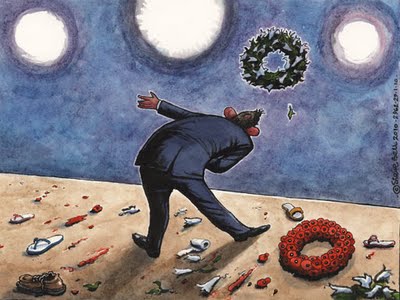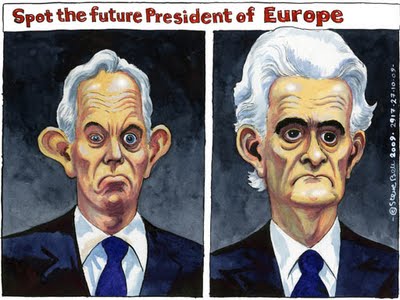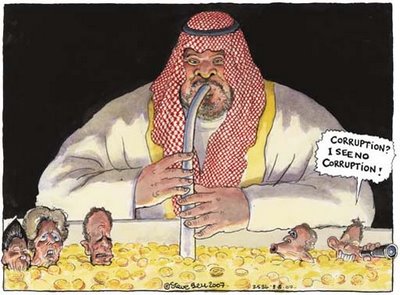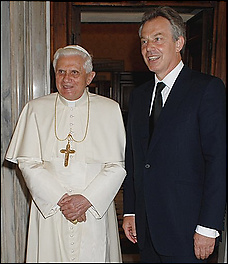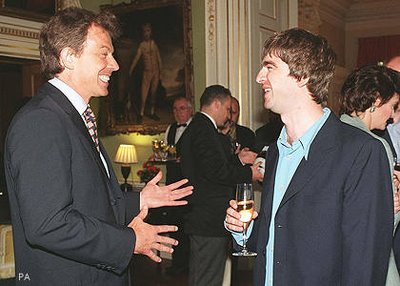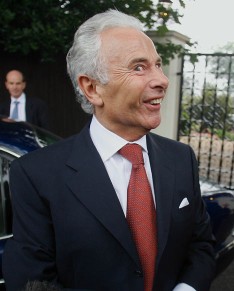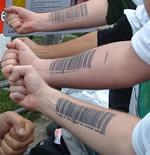 You can't really say that 2007 was anything but eventful. At long last, we were freed from the tyranny of Blair and Blairism, only for it to be replaced by revolutionary Brownism - indistinguishable and just as incompetent. He started so well that even I was encouraged to begin with; then it all came crashing down. One party politics though has in actuality remained the defining ideology. Neither the Tories or the Liberal Democrats offer anything approaching a genuine alternative, let alone even an illusion of change. If anything, the Conservatives have shifted further to the right - emboldened by the inheritance tax cut pledge. The side is only held up by their opposition to the extension of detention without charge for "terrorist suspects", which provides the party with liberal credentials that it doesn't deserve. With Nick Clegg replacing the dignified but doomed Ming Campbell, the lack of difference is all too enveloping.
You can't really say that 2007 was anything but eventful. At long last, we were freed from the tyranny of Blair and Blairism, only for it to be replaced by revolutionary Brownism - indistinguishable and just as incompetent. He started so well that even I was encouraged to begin with; then it all came crashing down. One party politics though has in actuality remained the defining ideology. Neither the Tories or the Liberal Democrats offer anything approaching a genuine alternative, let alone even an illusion of change. If anything, the Conservatives have shifted further to the right - emboldened by the inheritance tax cut pledge. The side is only held up by their opposition to the extension of detention without charge for "terrorist suspects", which provides the party with liberal credentials that it doesn't deserve. With Nick Clegg replacing the dignified but doomed Ming Campbell, the lack of difference is all too enveloping.
Little in reality has changed. We enter a new year with a Brown government that has been reacting, not leading to the various catastrophes, from the losing of the child benefit discs, Northern Rock, David Abrahams' donations, to the continuing prison overcrowding and refusal to compromise over ID cards or extended detention limits. In Iraq, the troops numbers may have come down slightly, but their continuing presence has no rhyme or reason behind it, while we leave the translators we owe a debt to to the mercies of the militias and bureaucrats deciding whether they potentially live or die. Afghanistan remains as intractable as before, with the Tories denouncing any attempt whatsoever to talk to the Taliban and bring the lunacy that there's a military solution to an end. The assassination of Benazir Bhutto, however flawed she was, has plunged the region into further turmoil. The one silver lining is that the tension over Iran's nuclear programme has been alleviated thanks to the National Intelligence Estimate. There is no way now that Bush can lead an attack prior to his leaving office.
Iraq itself has been becalmed to an extent, but at what cost and for how long are questions without answers. The fall in violence has not been down to the surge, but to the salvation council model which has spread across the country. Former Sunni militants have turned decisively away from the takfirists of the Islamic State of Iraq, isolating both them and the foreign recruits which overwhelmingly made up their numbers. Of real concern however is whether the fragile accord between the Sunni and Shia groups holds where it exists, as is whether the former insurgents now being armed by the US on the councils eventually turn their guns on the occupiers. Despite the fall in violence, the numbers of American dead, just short of 1,000, are the highest to date. At least 18,000 Iraqis have died in violence this year, and you'd imagine that is most certainly a fraction of the real number.
Back home, we faced the most inept terror attacks since Kate Nash took to a microphone. The laughable attempt to blow first a nightclub then Glasgow airport up using patio gas canisters with nails packed around them was mostly responded to in the manner it warranted: contempt. Only the Sun went overboard, unable to come up with an original or distinct way to respond, resorting to facile flag-waving. Middle England was flooded, while northern working class England, similarly underwater previously, got ignored.
We'd be deluding ourselves if we thought that any of the above was the real story of the year. There was only one, and that occurred when Madeleine McCann vanished from the family apartment in Praia Da Luz back in May. That is the one indisputable fact that's been established, even 7 months later. Everything else has been pure conjecture. Where she went, whether she was murdered or abducted, and who was involved has been open to the public ever since. The coverage has never managed to strike the right note from the very beginning: first it was vapid emotional pornography, faux concern and caring from journalists only interested in extracting the necessary pound of flesh for their masters. It couldn't have been exemplified more than by how Robert Murat was at first implicated by a Sunday Mirror journalist. When that got stale, the Portuguese investigation itself was turned on for its "incompetence", or in other words, failing to find Madeleine for the poor, devastated and distressed McCanns, brimming with casual xenophobia and prejudice. It's hard now looking back to see it as anything other than a reaction to how the police weren't providing the media with any solid information because of the Portuguese legal system. The third act, the announcement that the McCanns themselves were being made arguidos, and their subsequent flight back to the UK, with the media unable to decide whether they were guilty as hell or the victims of the most unbearably hurtful slur, was capped by their decision to hire an ex-journalist as their spin doctor/spokesman. Their stomach-churningly bad decision to make a tape at Christmas addressed to Madeleine was the icing on the cake for a couple that have never understood the very basics of how the media work. That's not their fault, but even they must be amazed at how 7 months later their daughter's disappearance is still front page news. If the Diana inquest hadn't resumed that beaten and battered dead horse, then she could be described as the new one.
2008 stretches only slightly less bleakly than 2007 did. Still, musn't grumble, right?Labels: 2007 review, floods, Gordon Brown, handover of power, Iraq, Iraq four years on, Madeleine McCann, media hysteria, politics, terrorism, Tony Blair
